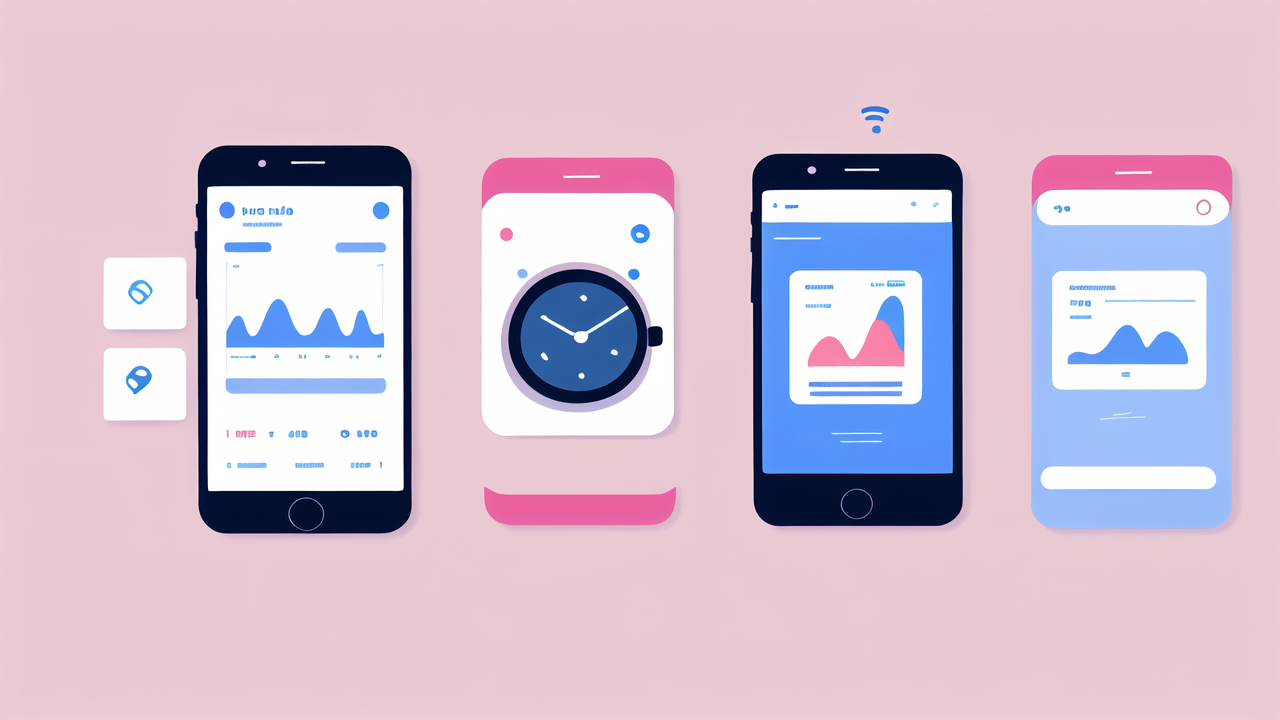Understanding Health Monitoring Through Wearable Technology
The Rise of Smart Watches in Personal Health Care
Smart watches have become a game-changer in personal health care. These devices have evolved from simple timekeepers to powerful health monitors. They offer a range of features that track vital signs and fitness metrics.

The popularity of smart watches has soared in recent years. More people are using them to monitor their health daily. These devices provide real-time data on heart rate, sleep patterns, and activity levels.
Smart watches are now essential tools for many health-conscious individuals. They offer a convenient way to stay on top of one's health. The technology continues to improve, making these devices more accurate and useful.
Integrating Health Metrics: A Deep Dive into Smart Watch Capabilities
Smart watches can track a wide array of health metrics. These include:
- Heart rate and rhythm
- Blood oxygen levels
- Sleep quality and duration
- Steps taken and calories burned
- Stress levels
Many smart watches now offer ECG capabilities. This feature can detect irregular heart rhythms. Some models can even measure blood pressure and body temperature.
Advanced sensors in these devices collect data 24/7. This continuous monitoring provides a comprehensive view of one's health. Users can spot trends and potential issues early on.
Smart watches also integrate with health apps on smartphones. This allows for deeper analysis of health data. Users can share this information with their healthcare providers for better care.
The Impact of Smart Watches on Health Outcomes
Empowering Individuals with Health Data
Smart watches are putting health information directly into people's hands. This easy access to data is changing how individuals approach their health.

Users can set health goals and track their progress in real-time. This immediate feedback encourages healthier habits. People are more likely to stay active when they can see their daily step count.
The devices also send reminders to move, breathe, or drink water. These nudges help users maintain healthy habits throughout the day.
Smart watches can detect potential health issues early. For example, they can alert users to irregular heart rhythms. This early warning can prompt timely medical intervention.
By providing a wealth of health data, smart watches empower users to take charge of their wellness. They help people make informed decisions about their lifestyle and health care.
Case Studies: Success Stories and Studies of Effectiveness
Several studies have shown the positive impact of smart watches on health outcomes. One study found that users who wore smart watches increased their daily activity by 30%.
Another research project focused on heart health. It showed that smart watch ECG features could detect atrial fibrillation with high accuracy. This early detection led to timely treatment for many participants.
A case study of diabetes management revealed promising results. Patients who used smart watches to monitor their activity and diet saw improved blood sugar control.
In the field of sleep health, smart watches have proven valuable. A study found that users who tracked their sleep patterns reported better sleep quality over time.
These success stories highlight the potential of smart watches in preventive health care. They show how these devices can motivate behavior change and improve health outcomes.
Navigating the Health Monitoring Ecosystem
Choosing the Right Smart Watch for Health Monitoring
Selecting the right smart watch for health monitoring can be overwhelming. There are many options available, each with different features. Here are some factors to consider:

- Health metrics tracked: Ensure the watch covers the metrics you need.
- Accuracy: Look for devices with proven accuracy in health measurements.
- Battery life: Consider how often you'll need to charge the device.
- Compatibility: Check if the watch works with your smartphone.
- Comfort: The watch should be comfortable for all-day wear.
- Water resistance: Important for swimmers or those who shower with the watch on.
- Price: Balance features with your budget.
Popular brands like Apple, Fitbit, and Garmin offer reliable health monitoring features. However, newer brands are also entering the market with innovative options.
Read reviews and compare features before making a decision. Consider your specific health goals when choosing a smart watch. Some watches specialize in certain areas, like fitness or heart health.
Regulatory Considerations for Health Monitoring Devices in the US
The FDA plays a crucial role in regulating health monitoring devices in the US. Smart watches that claim to diagnose or treat medical conditions are subject to FDA oversight.
Many smart watches fall under the category of "general wellness devices." These devices don't require FDA clearance. However, features like ECG or blood oxygen monitoring may need approval.
The FDA has created a "Digital Health Software Precertification Program." This program aims to streamline the approval process for digital health products.
Users should be aware of the regulatory status of their smart watch's health features. FDA-cleared features have undergone testing for accuracy and safety.
Privacy is another important consideration. Health data collected by smart watches is sensitive. Users should understand how their data is stored, used, and protected.
As smart watch technology advances, regulations will likely evolve. This ensures that these devices remain safe and effective for health monitoring.




Leave a comment
This site is protected by hCaptcha and the hCaptcha Privacy Policy and Terms of Service apply.